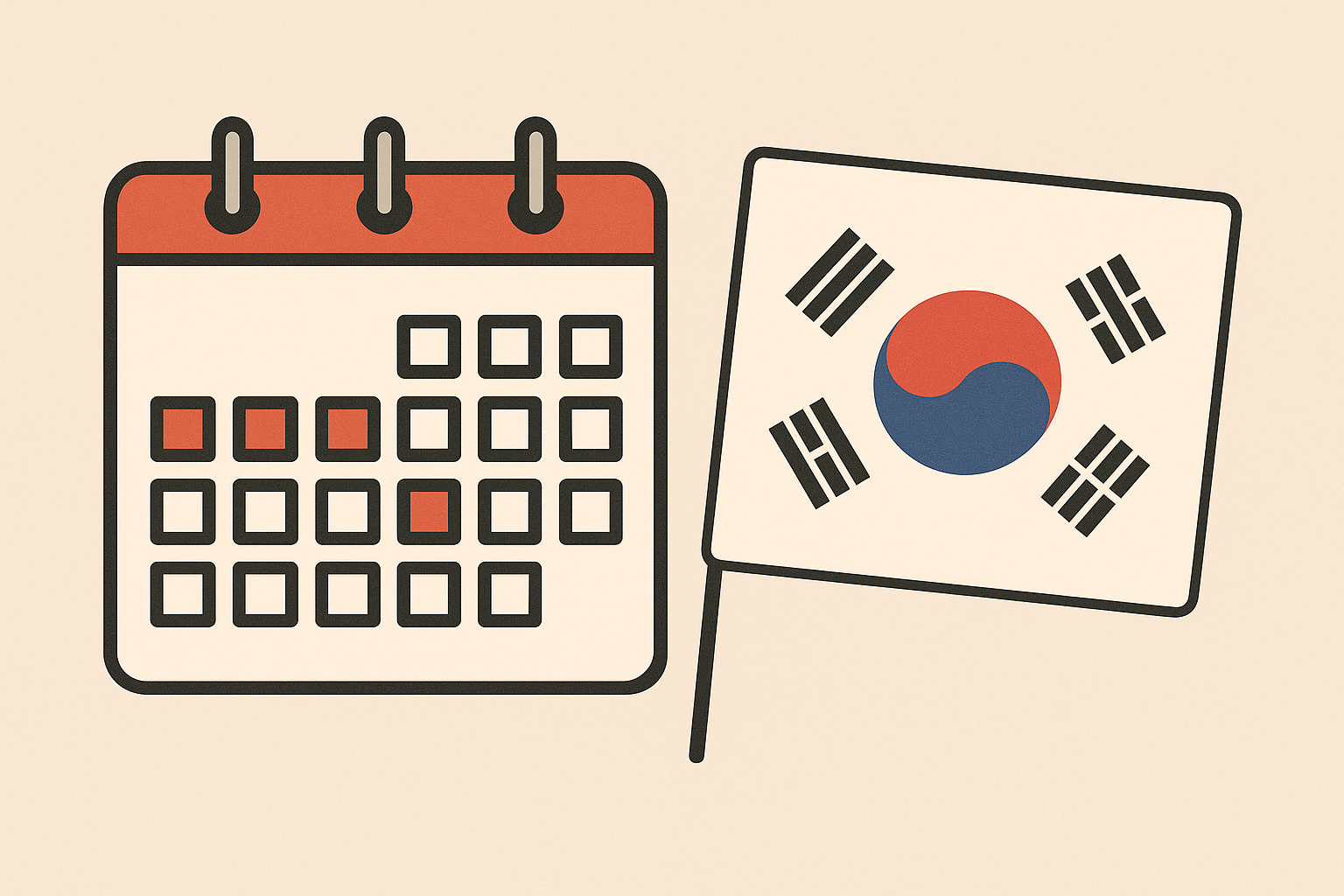Author
H.D. PARK
Author
H.D. PARK


If you’re planning a trip to South Korea in 2025, it’s a good idea to check Korea’s Public Holidays in 2025. Korea has several important holidays throughout the year — some of them are lively and festive, while others are quieter and more reflective. During major holidays, you might experience busy travel periods, crowded public transport, and even some business closures. On the bright side, it’s also a chance to witness Korean traditions up close!
Here’s a look at Korea’s public holidays in 2025, with tips on what you can expect as a visitor.
Date: January 1, Wednesday
Just like in many countries, Koreans celebrate January 1st as the start of the new year. While it’s not as big as Lunar New Year, many businesses close for the day, and families gather for a simple meal. Expect quieter streets, and note that some smaller shops and restaurants may take the day off.
Dates: January 27 (Monday) — January 30 (Thursday) (including public holiday and substitute holiday)
설날 is one of the biggest holidays in Korea. Families travel back to their hometowns to perform ancestral rites and spend time together. Many businesses, especially outside of major cities, will close for a few days.
Tip for visitors:
Date: March 1, Saturday
Substitute Holiday: March 3, Monday
This holiday commemorates Korea’s independence movement against Japanese rule in 1919. Ceremonies are held around the country, especially at historical sites.
Tip for visitors: Some patriotic events or marches might take place in downtown areas like Seoul City Hall or Tapgol Park.
Date: May 5, Monday
A very special day for children! Families often visit amusement parks, zoos, and other kid-friendly places.
Tip for visitors:
Date: May 5, Monday (Substitute Holiday May 6, Tuesday)
Celebrating the birth of Buddha, this is a beautiful and colorful holiday. Temples are decorated with thousands of lotus lanterns, and special ceremonies are held.
Tip for visitors:
Date: June 3, Tuesday
Due to the impeachment of the Korean president, 2025 has become an unexpected presidential election year.
Tip for visitors:
Date: June 6, Friday
A solemn day honoring the soldiers and civilians who died for the country.
Tip for visitors:
Date: August 15, Friday
Koreans celebrate liberation from Japanese colonial rule (1945).
Tip for visitors:
Date: October 3, Friday
This day commemorates the legendary founding of Korea in 2333 BC by Dangun.
Tip for visitors:
Dates: October 5 (Sunday) — October 8 (Wednesday) (Substitute Holiday on October 8)
Korea’s version of Thanksgiving, Chuseok is one of the biggest holidays of the year. Families gather to honor ancestors and share food.
Tip for visitors:
Date: October 9, Thursday
Celebrates the creation of Hangul, the Korean writing system invented by King Sejong in the 15th century.
Tip for visitors:
Date: December 25, Thursday
Christmas is a public holiday in Korea, but it’s more of a festive, date-night atmosphere than a family event.
Tip for visitors:
While most Korean holidays are just one day, some line up closely on the calendar, creating long weekends or full holiday stretches (연휴) — and these are peak travel times within Korea. During these periods, domestic travel surges, hotels fill up, and both train tickets and flights can become very expensive or sell out entirely.
Here are a few key extended holiday periods in 2025 that travelers should be aware of:
If a person takes Friday, May 2 off, they can enjoy a 6-day stretch from May 1–6.
Expectations:
As mentioned earlier, these are major 연휴 periods when millions of Koreans travel to their hometowns. Even international airports get packed with outbound travelers heading abroad.
Especially, October 2025 features one of the longest 연휴 (holiday stretches) of the year. It begins with Gaecheonjeol (National Foundation Day) on Friday, October 3, followed by Chuseok from October 5 (Sunday) to October 8 (Wednesday), and continues right into Hangul Day on Thursday, October 9. With Saturday the 4th in the middle, many Koreans will take extended time off, making it a full 7-day or even 9-day holiday for some.
Tip for travelers:
This period is expected to be extremely busy across the country.
If you are also curious about how it is like to travel Korea in different seasons, check out my post: The Best Time to Visit Korea: A Season-by-Season Guide